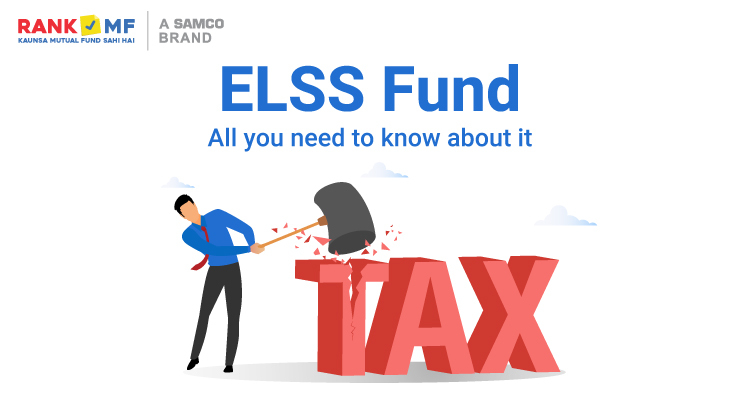Mutual funds are one of the best suited investment tools investors can opt for when planning their finances. It not only helps investors diversify their portfolio, but it also aids them to grow their wealth while maintaining consistent returns. However, the returns earned are taxable. So, if you are looking for an investment option that reduces your tax liability and leaves a great share of returns behind, then Equity Linked Saving Schemes (ELSS) is the right choice for you. So, let’s take a closer look at what ELSS Fund is and how it works.
What is an ELSS mutual fund?
ELSS is a mutual fund scheme that majorly invests in equity and equity-related instruments. Here, the fund manager’s main aim is to scale up capital appreciation with a high growth potential portfolio.
Investors can avail tax benefits under section 80C of the Income Tax Act, 1961 for investments made up to Rs. 1,50,000 with minimum lock-in period of 3-years.
How is ELSS Categorised?
ELSS schemes can be categorized as ‘Growth fund’ and ‘Dividend Payout’. When the goal is to create wealth over the long term, investors opt for an ELSS growth scheme. However, Dividend Payout is considered when the scheme is declaring a dividend. Investors can either choose to withdraw the dividend or reinvest the same to generate higher returns.
Benefits of an ELSS Fund
1. Shortest lock-in period:
ELSS schemes have the privilege of the shortest lock-in period of 3-years. But investors should be aware that the funds invested can’t be redeemed until three years of their investments.
2. Low minimum investment
Mutual funds cater to every investor’s needs. Investor’s can start SIP from as low as just Rs. 500. This ensures a consistent investment discipline so that investors can generate high returns along with tax benefits .
3. High returns on long term investments
Like the name suggests, ELSS schemes predominantly invest in diversified equity instruments. This ensures higher capital appreciation for the long term but investors need to be aware about the high risk associated with it.
Who Can Invest in ELSS?
This scheme is best suited for investors who are looking for high return potential along with tax benefits over the period of 3-year. Since ELSS majorly invests in the Equity asset class, investors must be prepared for the risk associated with such schemes.
When Should You Invest in ELSS?
It’s not a wise decision to invest in an ELSS fund at the end of the financial year, as you won’t get the tax benefits that you expect..
Instead, start your SIPs at the beginning of the financial year, i.e April, with a long term approach to maximize your investment returns.
While the internet is flooded with numerous tips on how to save money, instruments under section 80C are often underestimated. You see, taxes can’t be avoided, but you can manage them in a better way and you could aim to reduce your tax burden while generating growth.



Leave A Comment?